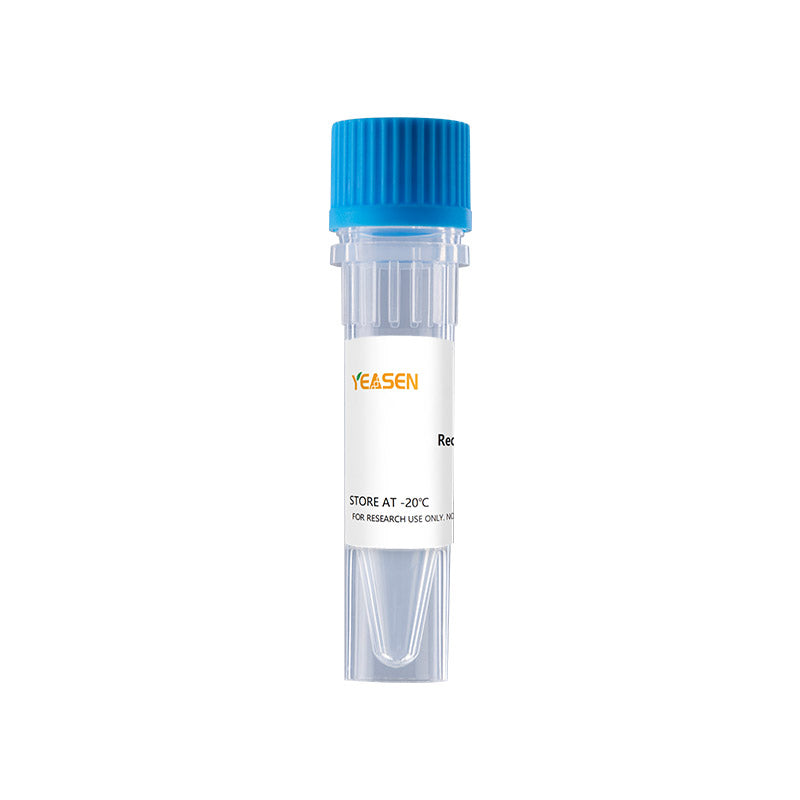Description
Endocrine gland-derived vascular endothelial growth factor (EG-VEGF), also called prokineticin 1 (PK1), is a member of the prokineticin family of secreted proteins that share a common structural motif containing ten conserved cysteine residues that form five pairs of disulfide bonds. The mature region in mouse is 93% and 87% aa identical to the mature regions in rat and human. Mouse EGVEGF stimulates proliferation and survival of liver sinusoidal endothelial cells, and, in mouse, EG-VEGF acts to induce monocyte migration and stimulate hematopoiesis.
Product Properties
|
Synonyms |
EGVEGF, Mambakine, PROK1, Prokineticin 1 |
|
Accession |
|
|
GeneID |
246691 |
|
Source |
E.coli-derived mouse EG-VEGF protein, Ala20-Phe105. |
|
Molecular Weight |
Approximately 9.6 kDa. |
|
AA Sequence |
AVITGACERD IQCGAGTCCA ISLWLRGLRL CTPLGREGEE CHPGSHKIPF LRKRQHHTCP CSPSLLCSRF PDGRYRCFRD LKNANF |
|
Tag |
None |
|
Physical Appearance |
Sterile Filtered White lyophilized (freeze-dried) powder. |
|
Purity |
>95% by SDS-PAGE and HPLC analyses. |
|
Biological Activity |
The ED50 as Measured in a cell proliferation assay using EJG bovine adrenal-derived endothelial cells. Fully biologically active when compared to standard. |
|
Endotoxin |
< 0.1 EU per 1μg of the protein by the LAL method. |
|
Formulation |
Lyophilized from a 0.2 μm filtered concentrated solution in PBS, pH7.4, with 3% Trehalose. |
|
Reconstitution |
We recommend that this vial be briefly centrifuged prior to opening to bring the contents to the bottom. Reconstitute in sterile distilled water or aqueous buffer containing 0.1% BSA to a concentration of 0.1-1.0 mg/mL. Stock solutions should be apportioned into working aliquots and stored at ≤ -20℃. Further dilutions should be made in appropriate buffered solutions. |
Shipping and Storage
The products are shipped with ice pack and can be stored at -20℃ to -80℃ for 1 year.
Recommend to aliquot the protein into smaller quantities when first used and avoid repeated freeze-thaw cycles.
Cautions
1. Avoid repeated freeze-thaw cycles.
2. For your safety and health, please wear lab coats and disposable gloves for operation.
3.For research use only!
Payment & Security
Your payment information is processed securely. We do not store credit card details nor have access to your credit card information.
Inquiry
You may also like
FAQ
The product is for research purposes only and is not intended for therapeutic or diagnostic use in humans or animals. Products and content are protected by patents, trademarks, and copyrights owned by Yeasen Biotechnology. Trademark symbols indicate the country of origin, not necessarily registration in all regions.
Certain applications may require additional third-party intellectual property rights.
Yeasen is dedicated to ethical science, believing our research should address critical questions while ensuring safety and ethical standards.

